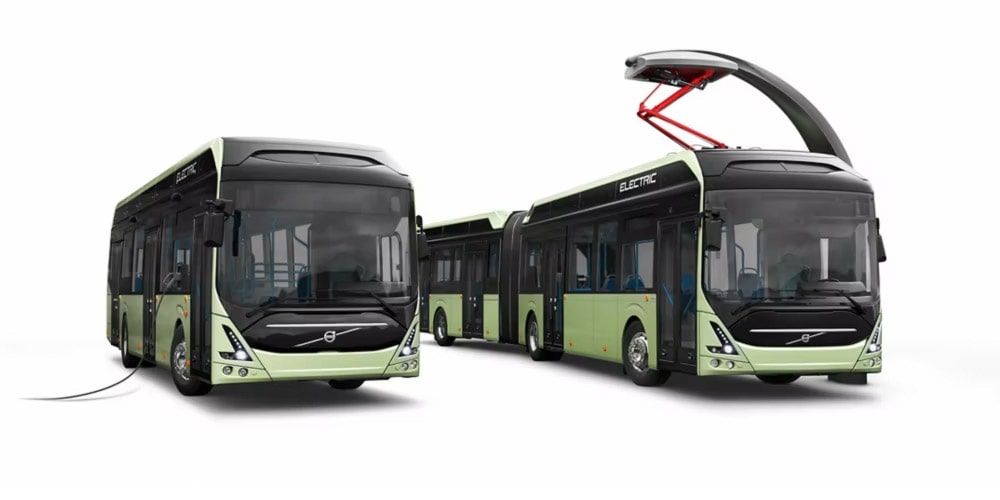Volvo Buses signs electric bus cooperation with MCV
From next year, Volvo Buses wants MCV (Manufacturing Commercial Vehicles) to produce bodies for its electric buses in the city and intercity segments in the European markets. This is provided for in a memorandum of understanding between the two companies.
++ This article has been updated; please continue reading below. ++
Volvo Buses had previously decided not to manufacture complete buses in Europe. The agreement, now concluded, provides MCV to produce bodies under licence for the Volvo 7900 Electric and 7900 Electric Articulated city buses with two and three axles from the summer of 2024. These e-buses are scheduled for delivery to customers in Europe from early 2025.
Volvo Buses and MCV also plan to develop an electric intercity bus offering jointly. However, details of the planned vehicle for the intercity segment are not yet known.
Volvo Buses will continue to manufacture the chassis, including the electric drives, and the existing production for this at the two Swedish plants in Borås and Uddevalla will also be retained. However, the Volvo plant in Wroclaw, Poland, where the bodies for the chassis are currently manufactured, is to be closed by the first quarter of 2024. On the other hand, the bodies with bodywork and the interior will come from MCV in the future.
MCV, or Manufacturing Commercial Vehicles, is a company from Egypt that, as reported, also wants to gain a foothold in Germany with its own electric city bus. MCV has plants in Egypt, Singapore and South Africa and was once founded as a general agency of Daimler. Since 2006, MCV has been producing vehicles under its own brand name, primarily based on chassis from other manufacturers – such as Mercedes-Benz and Volvo Buses.
The Swedish company, therefore, describes MCV in the press release as “one of Volvo Buses’ most important partners”, as bodies have already been successfully delivered to customers in the UK. Based on the BZL Electric chassis, Metroline, for example, operates e-buses from the duo, while Stagecoach recently ordered 170 MCV buses with Volvo chassis.
“We are very pleased that we have deepened our partnership with MCV since they have both the experience and the competence to produce bodies of the highest quality, meeting European standards and demands,” says Dan Pettersson, senior vice president at Volvo Buses. “By cooperating with an external bodybuilder, we will have greater flexibility to better meet market requirements and customer demands.”
However, the cooperation is not exclusive: in parallel to the partnership with MCV, Volvo Buses says it is “exploring additional offers with other bodybuilders”.
Update 06 September 2023
Volvo Buses and Egypt’s MCV have finalised the production agreement following the MoU that was signed in April. MCV will produce bodies for Volvo’s city buses 7900 Electric and 7900 Electric Articulated, as well as an intercity electric bus at a later date.
“By completing the agreement with MCV, they can now manufacture our bodies so that we can offer European customers a complete range of Volvo’s city and intercity buses in the premium segment,” says Dan Pettersson, Senior Vice President at Volvo Buses. He called MCV a “perfect partner with the skills and capacity to meet the high demands of our European customers”.
Under the new business model in Europe and the agreement with MCV, Volvo Buses will continue to be the point of contact for customers regarding spare parts and services, both for new offers and customers who already have Volvo buses in their fleet.
“Our business model means that we have close collaboration with some of the world’s leading bodybuilders, which allows us to combine our expertise in each area. It improves our ability to develop and adapt solutions to meet customers’ needs now and into the future,” adds Pettersson.
volvobuses.com, volvobuses.com (update Sept ’23)





0 Comments